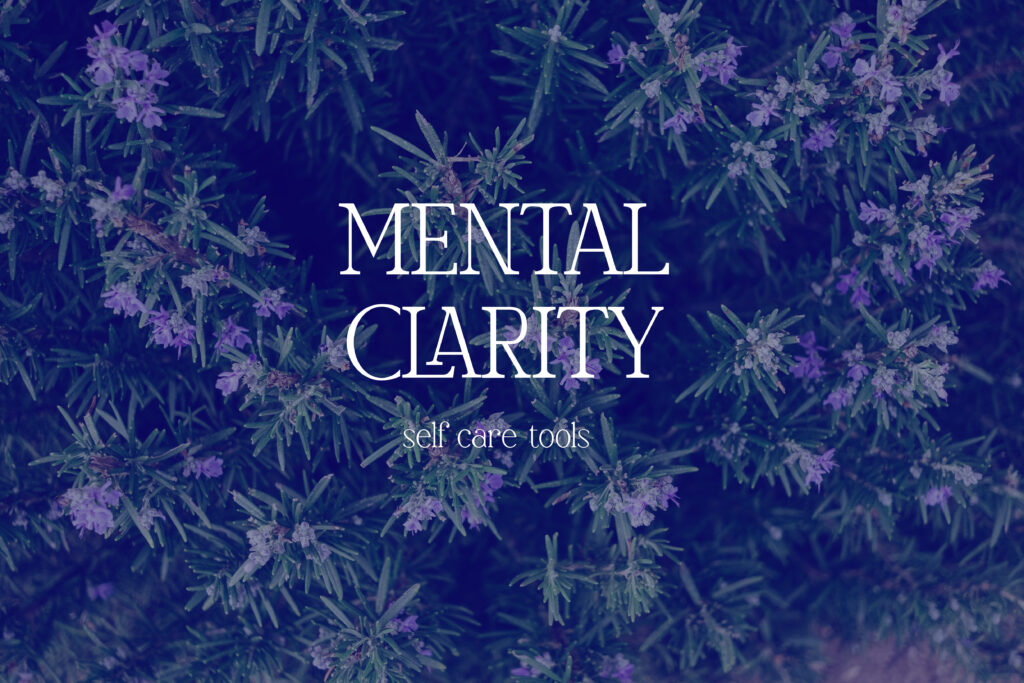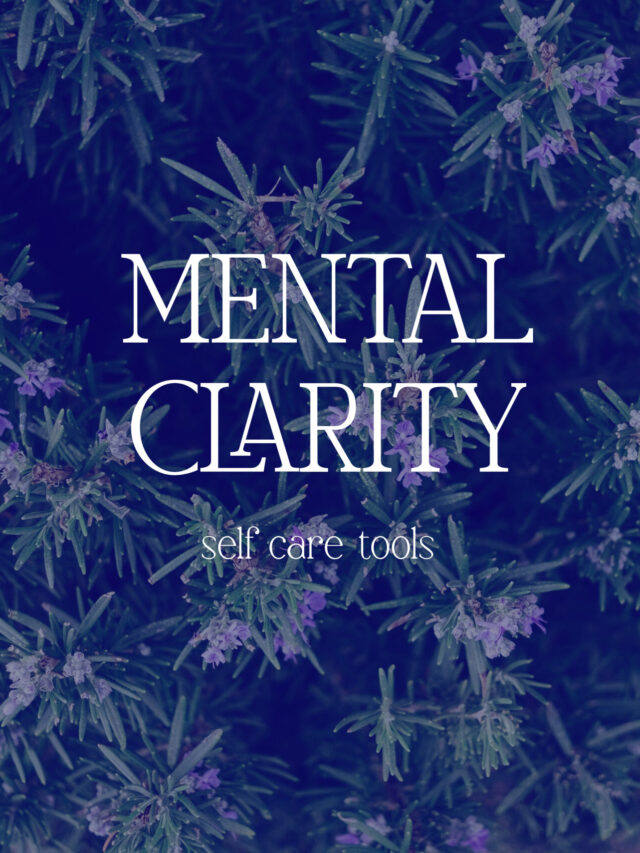Plant Allies for Mental Clarity
If you’re familiar with a sluggish, foggy state of mind, you know how hard it is to live with. You may wonder if there are certain herbs for mental clarity we could use to feel better.
Fortunately, there are holistic ways to sharpen your mind and focus your thoughts. According to Dr. Aviva Romm, MD, herbalist, and midwife, many herbs have been used for centuries to support mental clarity and cognitive function. Many of these herbs work because they increase blood flow to the brain, reduce inflammation, and support healthy neurotransmitter function.
In this post, we’ll explore some of the top herbs for mental clarity. We’ll also take a look at some other habits that can help us stay sharp.

Herbs for Mental Clarity
- Bacopa
First on our list of herbs for focus is Bacopa, a powerful herb that has been used for centuries in Ayurvedic medicine to enhance memory and cognitive function.
Bacopa supports a calm state of mind. Sometimes the stressors clouding our thoughts make it difficult to concentrate. This herb also contains compounds that can improve blood flow to the brain, allowing for increased oxygenation and nutrient delivery to this vital organ.
- Gotu Kola
Gotu Kola is another herb people use for its cognitive benefits. This herb is believed to help increase mental alertness and improve memory recall. Gotu Kola is also rich in antioxidants, which can help protect the brain from oxidative stress and inflammation.
- Ginkgo Biloba
Ginkgo Biloba is a well-known herb that people have used for centuries in traditional Chinese medicine to support brain health.
This herb contains compounds that improve blood flow to the brain and increase oxygenation, enhancing mental clarity and focus. Ginkgo Biloba also has antioxidant and anti-inflammatory properties, which offers the brain protection from damage as we age.
- Rosemary
Rosemary is a common herb found in many kitchens, but it also has cognitive benefits. This herb contains compounds that can improve memory and concentration. Rosemary has also been shown to have anti-inflammatory properties, which can help protect the brain from damage. We love it for being one of the most accessible herbs for mental alertness there is.
- Ashwagandha
We also have to mention Ashwagandha, an adaptogenic herb that people use to help strengthen the body against stress. Stress can often impact our mental clarity and ability to focus, but Ashwagandha can help support our bodies’ stress response and promote a sense of calm and clarity.
A good way to think about Ashwagandha is that it’s very grounding, so if you feel like your lack of focus is due to a hyperactive state of mind, it may be a good one to reach for.
- Holy Basil
Holy Basil, also known as Tulsi, is an adaptogenic herb commonly used in Ayurvedic medicine to help the body cope with stress. Like Ashwagandha, Holy Basil can help promote a sense of calm and clarity during times of stress, which can help support mental focus and clarity.
- Lion’s Mane
Lion’s Mane is a type of mushroom that offers profound cognitive benefits. This mushroom contains compounds that can help promote the growth and regeneration of nerve cells in the brain, which can improve memory and cognitive function. Lion’s Mane also has antioxidant and anti-inflammatory properties, which can help protect the brain from damage.
- Rhodiola
Rhodiola is another adaptogenic herb that helps support mental clarity and focus. This herb has been shown to help improve cognitive function, reduce mental fatigue, and enhance physical performance. Rhodiola can also help promote a sense of calm and relaxation, which can support mental clarity and focus.
- Sage
Sage is a common herb found in many kitchens, but it also has cognitive benefits. This herb is linked to improved memory and concentration. Sage contains compounds that can help protect the brain from oxidative stress and inflammation, which can promote healthy brain aging.
- Peppermint
Peppermint is another aromatic and abundant herb that stimulates mental clarity and focus. This herb has been shown to improve cognitive function in test-takers, reduce mental fatigue, and enhance alertness. Peppermint can also help support digestion and reduce stress, which can indirectly support mental clarity.
Habits for Mental Clarity
While herbs are a powerful tool on the quest for mental clarity, it’s also important to cultivate healthy habits that support your brain, too. Here are a few habits to cultivate if you want to improve your mental clarity:
- Get Enough Sleep
Sleep is essential for brain health and cognitive function. Sleep is the key to memory consolidation. If you’re mentally fatigued, lack of sleep might be the culprit.
- Stay Hydrated
Dehydration can also impact cognitive function and mental clarity. Be sure to drink enough water throughout the day to stay hydrated and support your brain health.
- Practice Mindfulness
Practicing mindfulness can help reduce stress and improve mental clarity. Try incorporating mindfulness practices, such as meditation or deep breathing, into your daily routine to support your mental health.
- Exercise Regularly
Regular exercise can help improve cognitive function, reduce mental fatigue, and support brain health. Aim to get at least 30 minutes of exercise each day to support your mental clarity.
- Limit Distractions
Distractions make it difficult to focus. Limit them as much as you can. For example, turn off notifications on social media or email during times when you need to focus on a task or project.
- Eat a Balanced Diet
We all need plenty of fruits, vegetables, whole grains, and healthy fats. Our diet has a big impact on our brain function. Aim to eat a variety of nutrient-dense foods to support your mental clarity.
Additional Tips
For even more ways to feel more mental clarity, follow these suggestions when the situation calls for them.
1. Use a Timer
Having trouble completing a task because of brain fog? Set a timer. When you focus on a single task for even a short amount of time, such as 15 minutes, you’ll have an easier time. This technique, known as the Pomodoro Technique, involves working on a task for a set amount of time, taking a short break, and then repeating the process.
2. Take Breaks
If you start to get distracted while working on a task, you might just need a break. Try to take short breaks throughout the day. You can spend time on other positive activities, like a quick walk or meditation, to support your mental health.
3. Prioritize Tasks
If you’re not sure where to begin, prioritize your tasks to help you stay organized and focused. Create a to-do list each day and prioritize tasks based on their importance and urgency.
4. Practice Gratitude
Practicing gratitude can help reduce stress and improve mental clarity. Commit to a daily gratitude practice, such as writing down three things you’re grateful for each day, to support your mental health.
5. Learn Something New
Could boredom be the culprit? If you’re unable to concentrate, see if doing something new helps. Take up a new hobby or learn a new skill to support your mental health.
Sources:
Photo by Paul Hanaoka on Unsplash







